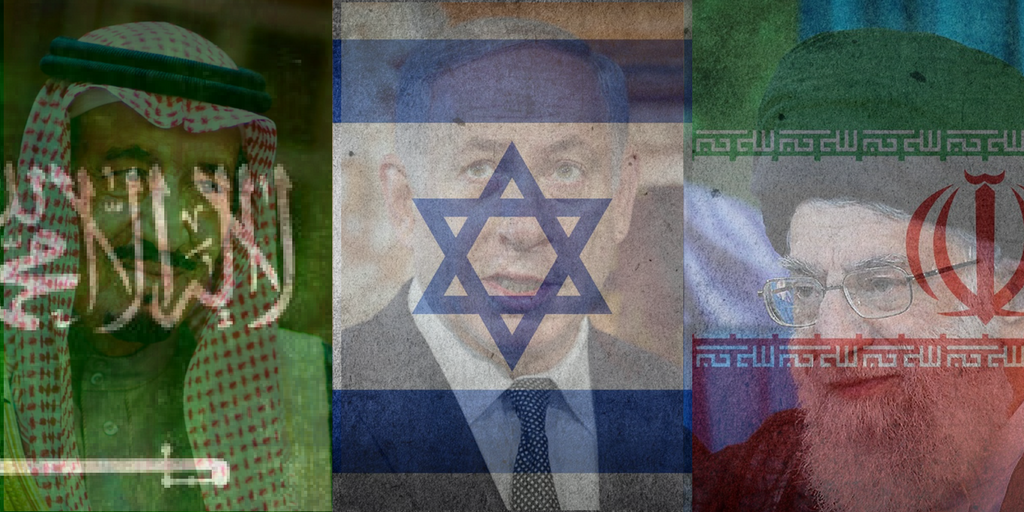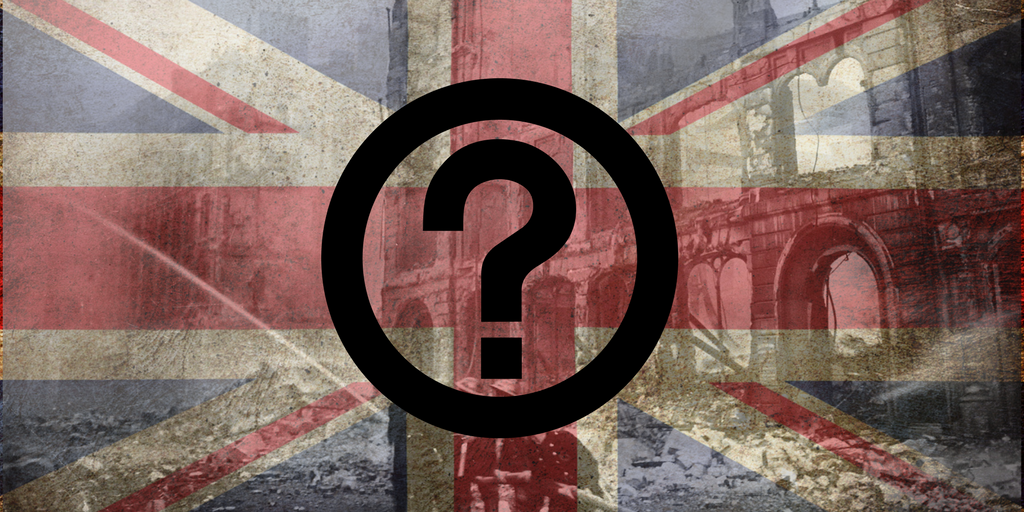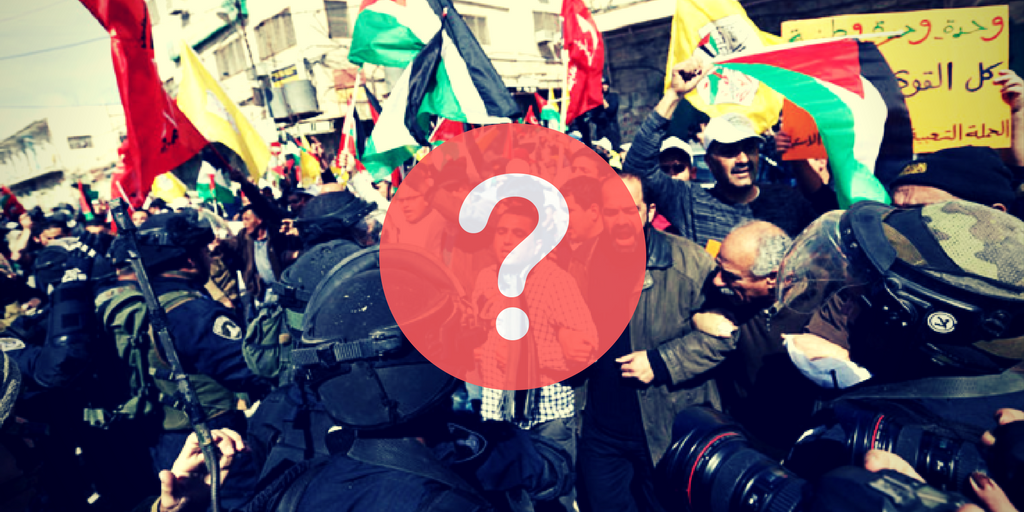Sequel to the dispelling of doubts regarding the feasibility – and morality – of largescale, financially incentivized emigration as the only non-kinetic approach for resolution of the Israel-Palestinian impasse.
The pessimist sees difficulty in every opportunity. The optimist sees the opportunity in every difficulty. -Widely attributed to Winston Churchill
Readers will recall that last week I began a two part response to FAQs (Frequently Asked Questions) relating to the practical feasibility/moral acceptability of my proposed Humanitarian Paradigm (HP), which prescribes, among other measures, large-scale financially incentivized emigration of the Palestinian-Arabs, living across the pre-1967 lines as the only route to attain long-term survivability for Israel as the nation-state of the Jewish people.
To recap briefly
In last week’s column, I addressed the question of the overall cost of the funded emigration project, and showed that, given the political will to implement it, it would be eminently affordable – even if Israel had to shoulder the burden alone. If other industrial nations could be induced to participate, the total cost would be an imperceptible percentage of their GDP.
I then went on to demonstrate that there is ample evidence indicating a wide-spread desire in large sections of the Palestinian-Arab population to emigrate permanently in search of more secure and prosperous livee elsewhere. This point was underscored by a recent Haaretz article , describing how thousands of Gazans had fled their home to Greece, undertaking perilous risk to extricate themselves from the harrowing hardships imposed on them by the ill-conceived endeavor to foist statehood on the Palestinian-Arabs. Significantly, according to the Haaretz report, none of them blamed Israel for their plight—but rather the ruling Hamas-regime, which, it will be recalled, was elected by popular vote to replace the rival Fatah faction, ousted because of its corruption and poor governance.
Finally, I dealt with the question of the prospective host nations, pointing out that the funded Palestinian-Arab émigrés would not arrive as an uncontrolled deluge of destitute humanity, but as an orderly regulated stream of relatively affluent immigrants spread over about a decade-and-a-half, whose absorption would entail significant capital inflows for the host nation’s economy. Moreover, given the fact that, globally, migrants total almost a quarter billion, Palestinian-Arab migration of several hundred thousand a year would comprise a small fraction of one percent of the overall number—hardly an inconceivable prospect.
Following this short summary of previously addressed FAQs, we can now move on to tackle several additional ones.
FAQ 4: Won’t fear of fratricide deter recipients?
One of the most commonly raised reservations as to the practical applicability of the HP is that potential recipients of the relocation/rehabilitation grants would be deterred from accepting them because of threats of retribution from their kin-folk who allegedly would view such action as perfidious betrayal of the Palestinian-Arabs’ national aspirations.
In contending with this question, it is necessary to distinguish between two possible scenarios, in which such internecine intimidation will be either a phenomenon whose scope is (a) limited; or (b) wide-spread and pervasive.
Clearly, if the former is true, it is unlikely to have any significant inhibiting impact on the conduct of prospective recipients of the relocation/rehabilitation grants.
If, however, the assumption is that the latter is the case, several points need to be made:
– If this objection to the HP is to have any credence, its proponents must present evidence (as opposed to unproven supposition) that potential violent opponents of the HP program have the ability not only to inflict harm on prospective recipients (as opposed to issuing empty threats) , but that they can sustain such ability over time.
– In this regard, it should be kept in mind that implementation of the HP entails the disarming, dismantling and disbanding —if need be, coercively—of the ruling Palestinian regime, and reinstating Israeli governance over all territory under Palestinian-Arab control.
Inhibiting internecine intimidation
The HP is hardly unique with regard to this latter point. All other proffered policy alternatives for the failed, foolhardy two-state formula entail such measures—either by explicit stipulation, or implicit inference—since preserving the current Palestinian regime intact would clearly preclude their implementation. Indeed, they are even endorsed by some pundits who do not discount the eventual emergence of a Palestinian state, such as Middle East Forum president, Daniel Pipes.
Clearly, the dispersal of the central Palestinian governing body, together with the defanging of its armed organs and the deployment of Israeli forces in their stead , will greatly curtail (although not entirely eliminate) the scope for internecine intimidation and the capacity to dissuade potential recipients of the relocation/rehabilitation grants from availing themselves of the funds.
In addition, Israel should task its own formidable military and intelligence services to protect prospective recipients of these grants by identifying, intervening and thwarting attempts to intimidate those seeking to enhance their lives by extricating themselves from the control of the disastrously dysfunctional regime under which they live.
Moreover, the international community should be called upon to cooperate with and participate in this principled endeavor to prevent fratricidal elements within Palestinian society from depriving their brethren of the opportunity of better, safer lives. After all, violence against Palestinian-Arabs, who choose to reside within any given host nation, would comprise an intolerable violation of that country’s national sovereignty.
Appalling indictment of “Palestinian” society?
Of course invoking the specter of large-scale fratricide as an impediment to the acceptance of the HP is an appalling indictment of Palestinian-Arab society.
After all, the inescapable implication of such an objection to the HP’s practical applicability is that its acceptance by otherwise willing recipients, wishing to avail themselves of opportunity to seek security and prosperity elsewhere, can only be impeded by violent extortion of their kin-folk.
Accordingly, if the concern over large-scale fratricide is serious, it is in fact, at once, both the strongest argument in favor of the HP and against the establishment of a Palestinian state. After all, two unavoidable conclusions necessarily flow from it: (a) any predicted reluctance to accept the relocation/rehabilitating grants would not be a reflection of the free will of Palestinian-Arabs, but rather a coerced outcome that came about despite the fact that it is not; (b) Similarly, the endeavor for a Palestinian state is not one that manifests any authentic desire of the “Palestinian people” but rather one imposed on them, despite the fact that it does not.
As a result, any Palestinian-Arab state established under the pervasive threat of lethal retribution against any dissenter will not be an expression of genuine national aspirations but of extortion and coercion of large segments of Palestinian-Arab society, who would otherwise opt for an alternative outcome.
In summation then, if the fear of fratricide can be shown to be a tangible threat, it should not be considered a reason to abandon the HP formula. Quite the opposite! It should be considered an unacceptable phenomenon to be resolutely suppressed –by both Israel and the international community—in order to permit the Palestinian-Arab public the freedom of choice to determine their future.
FAQ 5: Would funded emigration not be considered unethical “ethnic cleansing”?
I have addressed the question of the moral merits of the HP extensively elsewhere (see “Palestine”: Who Has Moral High Ground?), where I demonstrate that the HP blueprint will be the most humane of all options if it succeeds, and the least inhumane if it does not.
I shall therefore refrain from repeating much of the arguments presented previously and focus on one crucial issue: The comparative moral merits of the widely endorsed two-state paradigm (TSS) and those of my proposed Humanitarian Paradigm (HP).
Since there is very little doubt (or dispute) as to the domestic nature of any prospective Palestinian state, anyone seeking to disqualify the HP because of its alleged moral shortcomings must be forced to contend with the following question: Who has the moral high-ground?
(a) The TSS-proponents, who advocate establishing (yet another) homophobic, misogynistic Muslim-majority tyranny, whose hallmarks would be: gender discrimination, gay persecution, religious intolerance, and political oppression of dissidents? ; or
(b) The HP-proponents who advocate providing non-belligerent Palestinian individuals with the opportunity of building a better life for themselves elsewhere, out of harm’s way, free from the recurring cycles of death, destruction and destitution, brought down on them by the cruel, corrupt cliques that have led them astray for decades.
Furthermore, TSS advocates should be compelled to clarify why they consider it morally acceptable to offer financial inducements to Jews in Judea-Samaria to evacuate their homes to facilitate the establishment of said homophobic, misogynistic tyranny, which, almost certainly, will become a bastion for Islamist terror; yet they consider it morally reprehensible to offer financial inducements to Arabs in Judea-Samaria to evacuate their homes to prevent the establishment of such an entity?
FAQ 6: What about those who remain?
This is, of course, a serious question and a detailed response would depend on, among other things, the size of the residual Palestinian-Arab population who refuse any material compensation as an inducement to emigrate.
The acuteness of the problem would undoubtedly be a function of its scale. Clearly, the smaller this residual population, the less pressing the need will be to deal with it. For example it seems plausible that if, say, only a hundred thousand Palestinians remain, consideration may well be given to the possibility of offering them Israeli citizenship – subject to stringent security vetting and sworn acceptance of Jewish sovereignty as the sole legitimate source of authority in the land – without endangering the Jewish character of the country.
However, it should be remembered that, unlike the two-state approach which advocates perilous concessions, and the one-state prescription which calls for incorporating the Palestinian-Arabs resident across the pre-1967 lines into Israel’s permanent population, the HP does not involve any cataclysmic irreversible measures.
At the heart of the HP program is a comprehensive system of material inducements to foster Palestinian emigration, which includes generous incentives for leaving and harsh disincentives for staying. As detailed elsewhere, such incentives would entail substantial monetary grants, up to 100 years GDP per capita per family in Palestinian terms; while the latter entail phased withdrawal of services (including provision of water, electricity, fuel, port facilities and so on) that Israel currently provides to the Palestinian-Arabs across the pre-1967 lines.
Accordingly, should it be found that the initial proposed inducements are ineffective, the former can be made more enticing, and/or the latter more daunting, until the proffered package is acceptable.
Seen in this context, it is difficult to envisage that many non-belligerent Palestinian-Arabs would prefer to endure the rigors of discontinued provision of services rather than avail themselves of the generous relocation/rehabilitation funds—especially given the dispersal of the Palestinian regime as an alternative source of such services.
FAQ 7 What if the same kind of offer were made to induce Jewish emigration?
In addressing this question several points should be borne in mind:
The offer would clearly not be made by an Israeli government. After all, the HP is intended as a measure to: (a) Ensure – not undermine – the survival of Israel as the nation-state of the Jews, and (b) Relieve the genuine humanitarian predicament of the Palestinian-Arabs—precipitated by the dysfunctional administration they have been subjected to since the 1993 Oslo process—not Jewish disgruntlement with the imperfect functioning of the Israeli government.
Of course, it would be impossible to prevent Arab elements from offering Jews financial inducement to emigrate from Israel, but in this regard it should be recalled that: (a) As a sovereign nation Israel can control the financial flows into the country and impede money from hostile sources reaching Israeli citizens, considerably complicating the transfer and receipt of funds. (b) Arab governments have been singularly reticent in providing large sums to advance the “Palestinian cause” and there is little chance (or evidence) that they would advance the hundreds of billions required to finance large scale Jewish emigration; (c) The overwhelming majority of Israelis enjoy living standards of an advanced post-industrial nation with a GDP per capita around 20 times higher than that in the Palestinian-administered territories; (d) Accordingly, it would be commensurately more difficult to tempt them to leave. Indeed, sums offered would have to be considerably higher to create a comparable incentive, running into millions rather than hundreds of thousands per family. (e) Moreover, a slew of recent polls show the large majority of Israelis are satisfied with their lives – thus the prospect of material incentives to induce large-scale emigration seems remote.
Urgent Zionist imperative.
The HP is the only Zionist-compliant policy prescription that can save Israel from the perilous dangers of the two-state formula and the specter of Lebanonization/Balkanization inherent in other proffered alternatives. Embarking on its implementation is a Zionist imperative that is both urgent and feasible.





